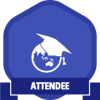Hinder rather than Help?
Yesterday I attended a very good workshop about “Having Classroom Observations” that was given by our director at our institiution. We started off by thinking about a scenario of the worst timing for a class observation We tried to put ourselves in the shoes of a teacher who had been teaching all day and at the very last minute s/he was asked whether the line manager could drop by to conduct a class observation. I have to admit that I had the goose bumps and felt the cold sweat on my neck. I have never experienced such an unplanned and haphazard class observation but my personal history associated with observations dates back and it brought about entertaining, exciting and enriching experiences.
When I was a novice teacher, a fresh graduate from ELT department I had great difficulty in adapting to teaching in the real classroom as well as having assessed class observations as a requirement of COTE course that I was doing. I remember thinking to myself; “Well, I am actually teaching, but at the same time, I am being told that I failed the observations. Then, maybe, I was not cut out for being a teacher”. Luckily in time my practical knowledge,content knowledge and all other kinds of teacher knowledge and reflective skills started to increase as well as my confidence and I developed a much more positive attitude towards observations. I won’t deny that I learned a lot from all those observations that came at different times and in types; video, peer, unseen, formal observations. (I have to say that video observations were painful for me because I couldn’t help picking up on my voice, hair and how fat I looked on the screen…Ugggghhhh!!)
When we shared our experiences about classroom observations it emerged that there were a variety of approaches. For instance my friend Elif told me that despite her negative feelings about her observer, the process made her think about the things that she had never thought about, such as possibility of the teacher table being a barrier between the teacher and students and better classroom use. Many ideas emerged in our discussion;
- Definition of observation
The suggested definitions were; “Judgment day”, “looking at a mirror”, seeing things from another perspective, a tool to be encouraged” and looking at your back- that’s the part you can’t normally see on your own”.
- Pop quiz approach to observation
Class door was opened and the observer declared that an observation would occur to the surprise of the teacher who learned about it there and there. Vice president was sitting at the back of the room when the teacher stepped in.
- Person of interest
Who may conduct class observation? Line
managers, directors, teacher trainers, freelance program evaluators, and researchers.
Well, how about parents? A colleague from Canada, Lilian, shared an interesting
anecdote about having observation with parents of a prospective student. Isn’t
that interesting?
- Personality conflict
The observer (mentor/ teacher trainer/ a line
manager) acting like a student and challenging the teacher by asking questions
(e.g. “What about the other word forms teacher, or hushing the teacher or standing
up and checking our students’ production that is posted on the walls, or typing
session notes loudly at the same time giving the attitude.
- Rationale behind
Whether the observation is done for training, development, or evaluation (of the teaching, curricular objectives, the program) makes a huge difference.
- How it’s done
The observation cycle with pre, while and post meetings benefit the process and the parties involved. Also it was suggested that when classroom observation is done as a routine, ripped of its reflective quality, it may bring about boredom.
- How natural is class observation?
For the teacher; often there are feelings of excitement, at times anxiety. Depending on the circumstances many of us also have felt (feel) positive towards observations.
For the students; They may try to be too helpful acting out incredibly involved and active. At times react against the observer implying “I don’t care about this visitor in class I am being as I am”. Also it turned out that we had often experienced students’ confusion regarding whether this observation was done to observe the students’ performance or the teacher’s.
- Product and Process orientation to Observation (and the intersection)
We also discussed the difference between observations that were conducted for training and development purposes. When observations are done for developmental purposes they may take tecahers from where they are and lead the way to where they would like to be in a process in terms of discovering your weak and strong areas and working on improvement. On the other hand, training means meeting a cerating criteria and it involves product orientation. There is also no dispute that there are gray areas and points of intersection.
A tool for professional development
Class observations can help the novice teachers to raise awareness about teaching practices and gain reflection skills into one’s own teaching. They can provide experienced teachers with refreshed perspective enriching their repertoire. Provided that class observations have certain supervisory and guiding principles established and communicated with the teachers.
Class observations can be a very powerful professional development tool when they encourage us to reason (1) the factors that made us satisfied with our teaching, (2)challenges that we experience in our classes and (3) possible actions to be taken to foster better teaching and learning.
At the end of the workshop I personally felt that having peer observation would act ![IMG_0213[1]](https://aslisaglam.edublogs.org/files/2012/02/IMG_02131-w8s96m-300x225.jpg) like a window to bring me fresh air. It will open up to new worlds, enabling me to take a look at my friends’/ colleagues’ teaching spheres and welcoming others to mine.
like a window to bring me fresh air. It will open up to new worlds, enabling me to take a look at my friends’/ colleagues’ teaching spheres and welcoming others to mine.
Afterall one of the best parts of being a teacher lies in the collaboration and the supportive network we have, in my opinion.
So, what do you think about class observations?
How about your experiences?
![IMG_0211[1]](https://aslisaglam.edublogs.org/files/2012/02/IMG_02111-1eizkg8-e1329433765500-225x300.jpg)



Recent Comments